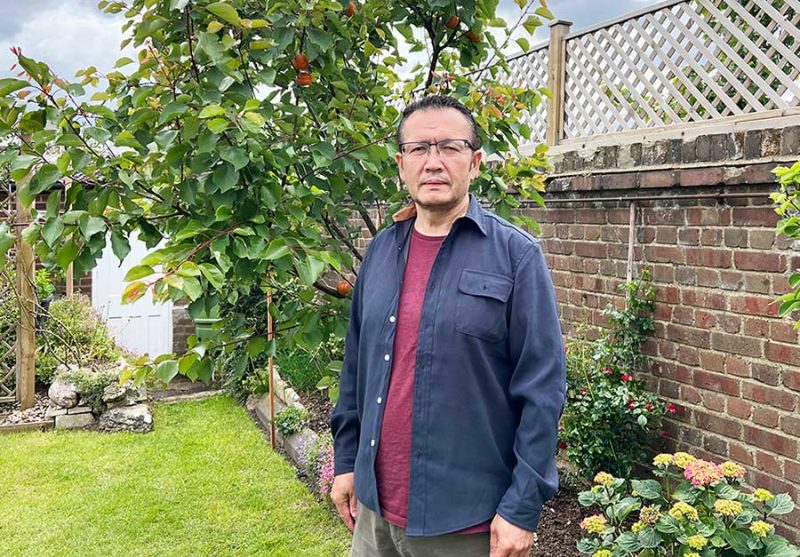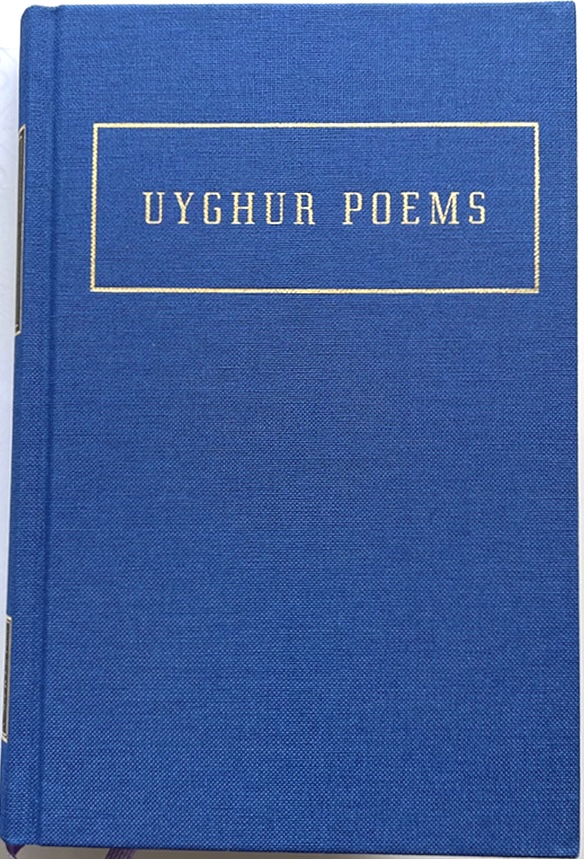Published by Bitter Winter Magazine on 21 June /2024
For an exiled poet, an apricot tree in London is a way of remembering his father and his youth in East Turkestan (China. Xinjiang).
by Aziz Isa Elkun
Edited by Ruth Ingram

Aziz Isa Elkun, UK-based exiled Uyghur poet in his London garden with a three year old apricot tree he has nurtured from a sapling to remind him of home.
One of my strongest childhood memories was following my father around our family orchard and closely watching him as he tended the trees. I helped him plant apricots from the age of six or seven. Our family owned a large tract of land in Xinjiang (also known as East Turkestan) north of the Tarim River, (south of Shayar County), the principal water source of the Tarim Basin that sweeps from the Karakoram Mountains in the West across the northern edge of the Taklimakan Desert to Lop Nur in the East.
My father had set his heart on growing a family orchard. I remember there being no water for the small apricot saplings after we planted them and I would follow my father, carrying a little bucket to bring water from the lake in the village to help the apricot and other trees grow.
I learned how to plant, graft, and look after fruit trees. We had one of the largest and most unique orchards in our neighbourhood. Everyone admired my father’s dedication as he struggled to grow fruit trees in the dry desert climate. He collected fruit trees for our garden from far and wide; even as far as Kucha, 65 kilometers to the north, and brought them home to grow. We had fig, pomegranate, apricot, pear, apple, peach, and hundred-meter-long vine trellises.

